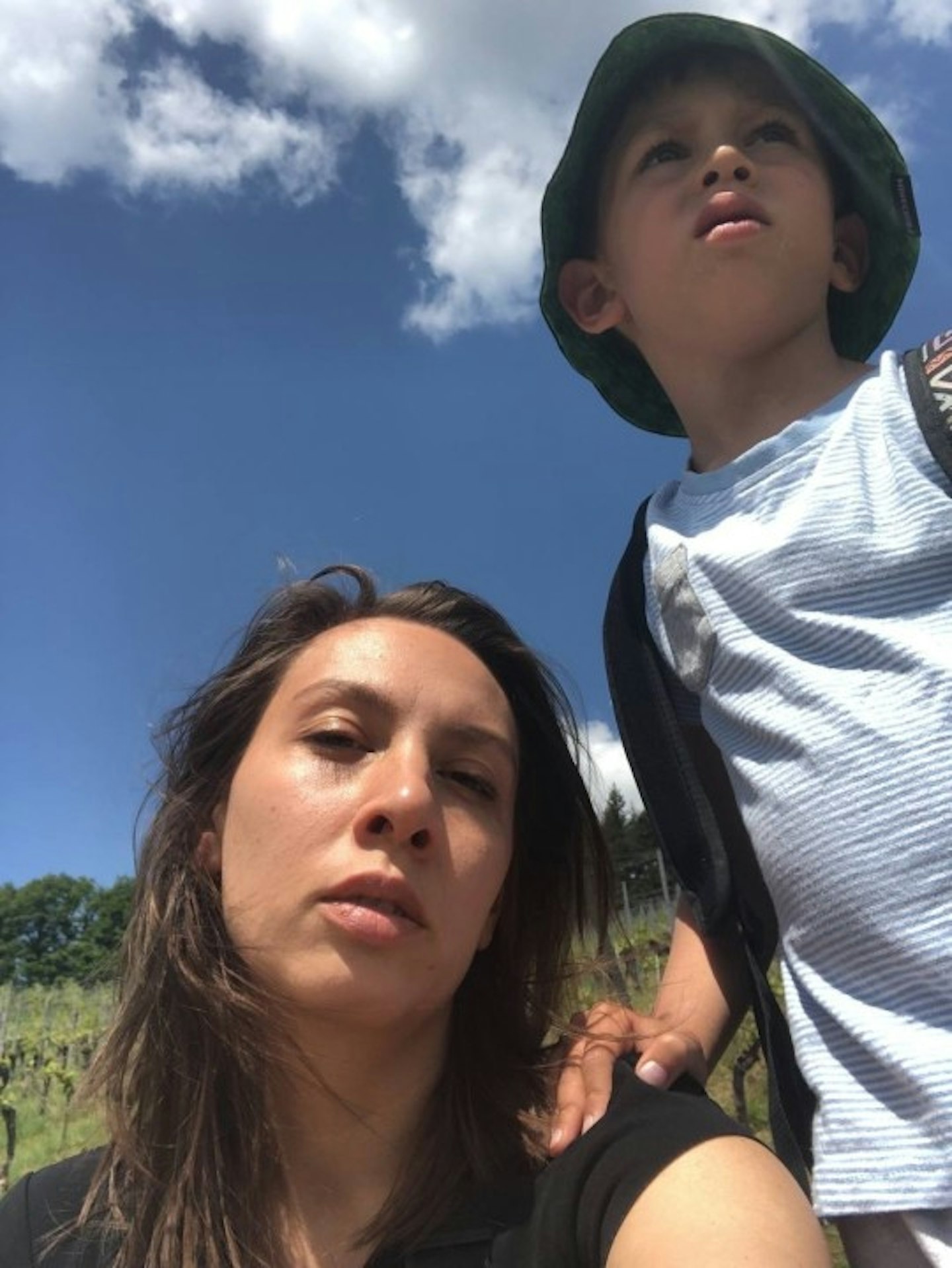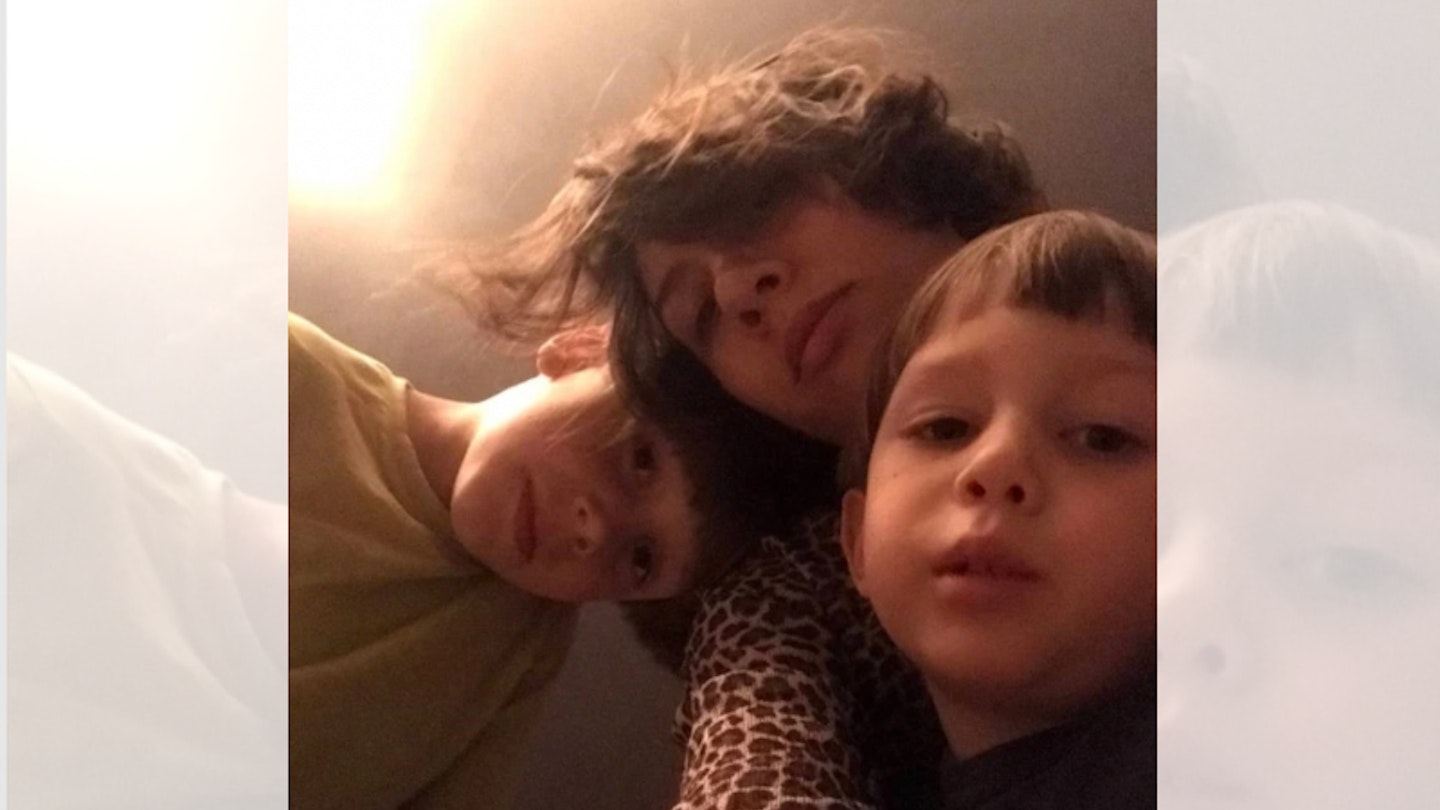It’s been a year since Russia launched its attack on Ukraine, throwing the lives of the 44 million people living there into chaos and sparking the worst European conflict since WW2. Since war broke out, 6,919 civilians have perished in the fighting – many of whom have been children.
Once a thriving European country, Ukraine is now a battlefield. Air raids are common, and missiles have destroyed buildings and homes.
Eight million civilians have escaped in fear for their lives and 115,200 Ukrainians have arrived in the UK seeking refuge.
When war broke out, Veronika Skliarova, 35, who lives in Lviv, Ukraine, with her partner, Sasha, 37, and her two children, Sasha, nine, and Danya, five, says their lives changed forever.
A year ago, the family were on holiday together in a mountain resort near the Polish border.
'We were having a lovely time,' Veronika says. 'But at 6am we woke up to the sound of explosions and the news that Russia had invaded. We knew that Putin had assembled troops at the border, but we didn’t really believe he’d attack. He had threatened for years to attack Ukraine but nothing had ever happened.
'It was terrifying. We could see the planes in the sky overhead and fled to the basement to hide. The children were scared. It felt surreal. I heard on the news how badly Kharkiv, where we lived, was hit. I was terrified for my family, even when I heard they were safe, I couldn’t stop worrying about them. It was hard to process that we were really at war.
'Since then, our lives have changed unimaginably. There was no way we could go home as it was under constant bombardment. So, my children and I went to Poland. It was heartbreaking leaving Sasha behind, but he had to stay because all men between the ages of 18 and 60 had to help with the war effort.
'Saying goodbye was so hard – we had no idea if or when we’d see each other again. It took seven hours to cross the border, and then a further six hours to drive to Warsaw. By the time we arrived I was exhausted both physically and mentally.'
The family spent the next few months staying with friends in the Czech Republic, then Germany where Veronika's parents joined them.
'We moved on to France and then Croatia,' she says. 'Although I felt lucky to have people who looked after us, we all longed to be at home. My boys struggled, it was simple things like their toys that they missed. When we fled, we just had the few clothes we’d taken with us on holiday.'

Last October Veronkia thought it was safe enough to go back to Ukraine.
'We couldn’t return to our old apartment, as it was badly damaged in the bombings. But we found a flat to rent in Lviv, near the Polish border,' she explains.
'Now we are settling into a new normal. I feel fortunate in many ways, my boys are back in school, they have the structure and routine that they desperately need, and I’m back in my home country, the place I love.
'I’m lucky that I haven’t lost anyone really close to me, though many people I knew and admired have died, which is devastating. But the war has taken its toll in other ways. When I was first reunited with Sasha, he proposed. The war had made us see how much we cherished each other.
'At the moment Sasha doesn’t need to be in the army – but we know it can change at any time. The stress of what might happen next is terrifying – there are constant air raids.'
Money is tight for the family too.
'Everything is so much more expensive – food alone has gone up by up to 40 per cent,' Veronika says. 'We live under a curfew and have to cope with blackouts. It’s a lot to endure.
'I can’t help but feel angry. This war is desperately unfair, we didn’t want it or deserve it. I’m scared of what the future holds for us, of how long the war might last and how much worse it’s going to get.
'And every day there’s more bad news. Two weeks ago, Russian bombs destroyed two streets in Kharkiv, beautiful streets that I used to visit all the time. It feels like my memories are being stolen and destroyed. I hope people don’t forget us, there’s no end in sight and we need help desperately.'
HOW YOU CAN HELP
-
The Disasters Emergency Committee is made up of 15 charities – they are delivering food, clean water and medical care to people in Ukraine and supporting refugees in neighbouring countries. To donate go to: dec.org.uk/appeal/ukraine-humanitarian-appeal
